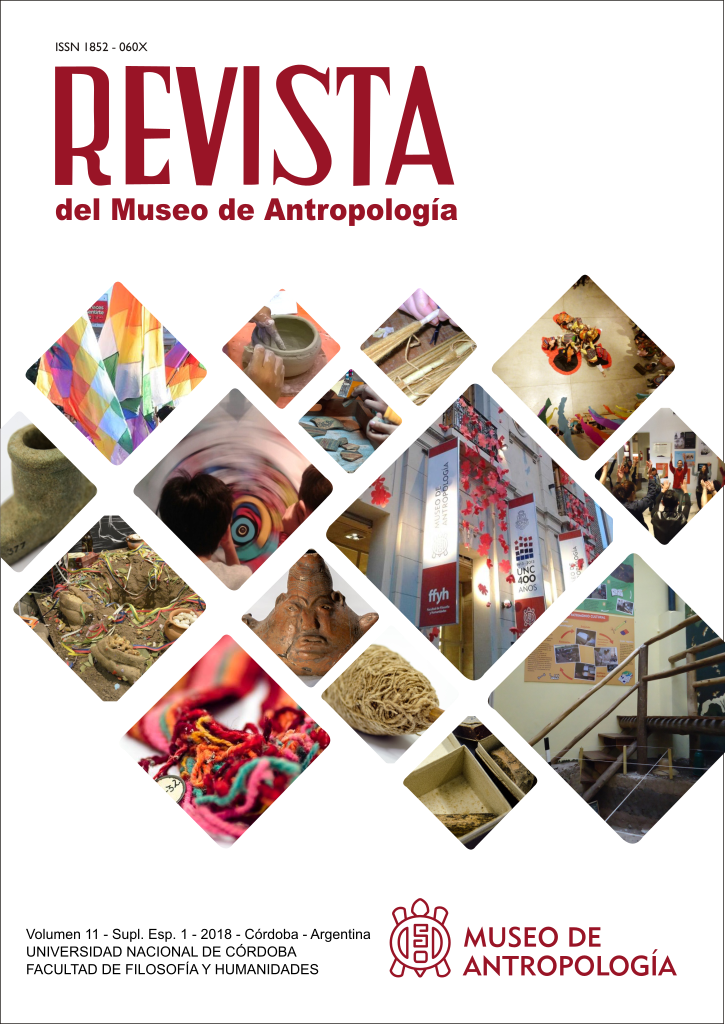Introduction to the dossier ethnographies of language
DOI:
https://doi.org/10.31048/1852.4826.v11.n0.21454Keywords:
Etnografía del lenguaje, antropología, narrativasAbstract
This dossier is the result of the 1st International Conference on Language Ethnography Studies, which in 2015 brought together researchers from different areas and research fields to discuss the multiple aspects of language, especially narrative, treated here from the ethnographic prism. As a first edition, we tried to reflect on a set of issues in order to problematise epistemological, aesthetic and political assumptions, often reduced to the opposition between orality and writing. Faced with this classic dichotomy, we chose to open a broad debate about language, through different ethnographic fields, diverse theoretical perspectives and not always converging analytical focuses, so that this multiplicity would be able to represent, on the one hand, the wide range of alternatives around approaches to discourse and, on the other, to draw attention to the impossibility of keeping the discussion focused on these two concepts still in force. Currently, narrative studies are claimed and worked on by the most varied fields of knowledge, from canonical areas such as, for example, those linked to the Faculty of Letters (discourse analysis, linguistics, among others), to gender studies, or even the most varied fields of medical sciences, psychology, philosophy, and so on. If we wanted to expand the argumentative potential, we could include here the uses made of these concepts by countless social movements, among them, feminist movements, LGBTs, vindicatory movements linked to the question of land, movements around ethnic or religious causes, among so many others that have testimony in the most varied parts of the planet. Thus, the idea, in that first moment, was to conceive an encounter where the conformation of the group did not pass so much through an analytical homogeneity (in terms of fields of knowledge and / or theoretical approaches), but that the researchers converged in methodological terms. We were then interested in providing a collection of ethnographic materials that, produced in different temporalities and spaces, could allude to the infinite richness that narrative studies can unleash. Thus, this collection is inclined to debate processes and research questions around language. One of the challenges emerging from this discussion is, as mentioned above, the transversality with which the theme of discourse / narrative operates. Consequently, it is common that in works on such themes, we find them associated with the discussion on memory, performance, texts, emotions, ethnography of speech, orality, folklore, etc.
Here, our initial orientation around the treatment of the idea of narrative/discourse arose from localized questions, especially in the anthropological field.
Downloads
Downloads
Published
Issue
Section
License
Those authors who have publications with this Journalaccept the following terms:
a. Authors will retain their copyrights and guarantee the journal the right of first publication of their work, which will be simultaneously subject to the Creative Commons Attribution License (Licencia de reconocimiento de Creative Commons) that allows third parties to share the work as long as its author and his first publication in this journal.
b. Authors may adopt other non-exclusive licensing agreements for the distribution of the version of the published work (eg, deposit it in an institutional electronic file or publish it in a monographic volume) provided that the initial publication in this journal is indicated.
c. Authors are allowed and recommended to disseminate their work on the Internet (eg in institutional telematic archives or on their website) before and during the submission process, which can lead to interesting exchanges and increase citations of the published work. (See The Effect of Open Access - El efecto del acceso abierto)












